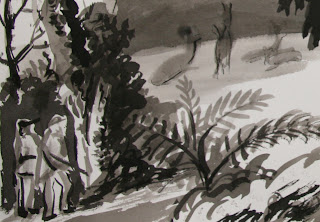 --Now we are on the side of light, the days are getting a little longer; think of the earth tilting away from the sun...
--Now we are on the side of light, the days are getting a little longer; think of the earth tilting away from the sun...--This morning I finished my proposal for the Art of Action. Two pages written, and a ten minute video (I'm going to be away, far away in Mexico in a sort of artist residency, and unable to make my presentation in person, and arranged to show a video of my proposal). I'm glad I'm done with it, I was agonizing over it to the point where it stopped making any sense. Ann watched the video and thought it seemed good, but she is biased.
--I didn't expect to get so involved with the whole process and project. I was thinking that it would be a little side job, figuring out the whole proposal, but it kind of ended up being challenging and fun.
--Have also enjoyed getting to know some of the other artists through their blogs, what an interesting bunch!














